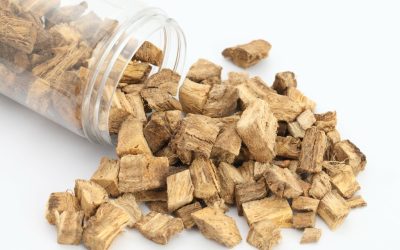Developing healthy daily routines—such as consistent exercise, nutritious eating, and sufficient sleep—creates stability and serves as a foundation for sobriety. Identifying and managing personal triggers through customized strategies—like problem-solving skills, boundary setting, and cognitive restructuring—can prevent relapse. Participating in evidence-based therapies, such as cognitive-behavioral therapy (CBT) or experiential therapy, further equips individuals with practical skills to navigate life’s stressors. When appropriate, involving family in therapy sessions enhances understanding and support, fostering a healthier environment for recovery. Maintaining long-term sobriety relies heavily on developing effective coping mechanisms that bolster resilience and emotional stability.
How To Rebuild Your Life After Addiction (One Area at a Time)
Establishing routines and setting goals that align with personal values offer structure and stability in recovery. These routines support mental and physical health, providing daily reinforcement of commitment. Moreover, a clear purpose enhances self-esteem, motivates ongoing effort, and nurtures a hopeful outlook for the future.
Finding Purpose and Meaning: Building a Fulfilling Life After Addiction
This guide will help you explore ways to build a purposeful life in sobriety, from setting goals and discovering new passions to creating a future that supports lasting recovery. Rebuilding your life after addiction is a journey that extends beyond rehabilitation. It involves understanding your challenges, building a strong support framework, prioritizing self-care, and maintaining hope through ongoing growth and therapy. Remember, recovery is a dynamic process that requires patience, resilience, and a commitment to personal transformation.
Exploring New Interests and Passions in Sobriety
They can guide you towards community-based organizations that help individuals thrive post-addiction. Mindfulness practices create mental resilience against stress triggers. Simple meditation techniques help you stay present and manage challenging emotions without turning to substances. Remember that purpose evolves – what brings meaning to your life today might shift as you grow in your recovery journey. Stay open to new possibilities and allow your interests to guide you toward activities that resonate with your authentic self. Many people in recovery find purpose through helping others facing similar challenges.

Set goals for your recovery journey
- Triggers such as stress, old social circles, and emotional struggles can make sobriety difficult.
- As recovery progresses, the focus shifts toward strengthening decision-making skills, impulse control, and emotional regulation.
Overcoming addiction is a monumental achievement, yet the journey doesn’t end at sobriety. The path ahead involves reinventing oneself and forging a new identity that supports a fulfilling, substance-free life. This article delves into the process of personal transformation post-addiction, offering insights and strategies to embrace a new chapter with clarity and purpose. Seeking professional resources like the SAMHSA National Helpline can offer alcoholism symptoms vital support services, treatment referrals, and community connections that bolster recovery efforts. By taking these deliberate steps, individuals can transform their lives, develop new passions, and build a healthier, more meaningful future. Creating a daily routine helps you stay focused, reduce stress, and avoid triggers during recovery.

Stay engaged with your support network, continue attending therapy or support group meetings, and keep practicing the healthy routines you’ve established. Whether it’s a daily walk, yoga, or a more intense workout, physical activity helps to rebuild your strength, boost your mood, and reduce stress. Exercise also releases endorphins, which are natural mood enhancers, helping to combat the feelings of anxiety or depression that can accompany recovery.
And, you can build a new, better family by forming relationships with new friends who are inspiring and empowering. And, there are people who recover with the help of doctors, including psychiatrists or psychologists, and with the support of their families. In fact, some people recover from addiction spontaneously, without any special medical treatment or stay in rehab. At some point, they realize that they rebuilding your life after addiction have had enough, and they are ready to live life differently.
- Regular physical activity helps your body recover and improves your mood by releasing feel-good chemicals like endorphins.
- That may be a mentor, a family friend, or someone who’s in a similar stage of life right now.
- In one study, two-thirds of the adults relapsed in social situations in which they experienced urges and temptations to drink or use.
- Grasping the complexities of addiction and the hurdles faced during recovery is crucial for those seeking a healthier life.
- Still, some people in the addiction-treatment field reserve recovery to mean only the process of achieving remission and believe it is a lifelong enterprise of avoiding relapse.
The role of personal goals and daily routines
Self-reflection isn’t about self-loathing or self-criticism but about understanding the root causes of addiction and the patterns that led to it. The path ahead holds endless possibilities for growth and fulfillment. You’ve already shown tremendous strength by choosing recovery, and that same strength will carry you through each new challenge and triumph. But what if you could replicate your voice, values, and message to stay consistent without burnout? Aim for a consistent sleep schedule, ensuring you get the recommended seven to eight hours of sleep each night. In evaluating your progress, you realize that you have started a business and it is not losing money.
- These passions serve as motivators, encouraging continued sobriety and resilience in facing life’s challenges.
- Integrating activities that nurture mental, physical, and social well-being enhances resilience and long-term stability.
- This recognition is vital to maintaining a healthy balance and prevents burnout during recovery.
What are the five stages of addiction recovery?
Relapse carries an increased risk of overdose if a person uses as much of the drug as they did before quitting. Neuroscientist Adi Jaffe, Ph.D., who himself recovered from addiction, outlines five steps. • Connection—being in touch with others who believe in and support recovery, and actively seeking help from others who have experienced similar difficulties.
Another is to carefully plan days so that they are filled with healthy, absorbing activities that give little time for rumination to run wild. Exercise, listening to music, getting sufficient rest—all can have a role in taking the focus off cravings. At Elevate Recovery Homes, we understand that recovery is a multifaceted process requiring personalized support and a nurturing environment. Our sober living homes in Colorado are designed to help men rebuild their lives after addiction by fostering growth, accountability, and independence. In this comprehensive guide, we’ll explore actionable steps, strategies, and resources to help you navigate life after addiction.
